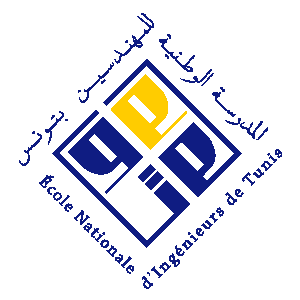Menu
Electrical Engineering
Business and opportunities

Presentation
The purpose of the ENIT Engineering Department is to provide future engineers with scientific and technical training, both theoretically and practically. The teaching covers, thanks to a common core and three options, a very broad spectrum of modern Electrical Engineering namely: electrical engineering, electrical systems, electronics, microelectronics, embedded systems, automation, automation industrial computing and industrial computing.
Certification: As ENIT has been a LabVIEW Academy certified institution since October 2011, Electrical Engineering training is complemented by a LabVIEW certifying module: (http://www.ni.com/academic/labview_academy_schools.htm)
LabVIEW Certification Issued by National Instruments Following Training
opportunities
The training provided at ENIT allowed students to integrate companies working in all the specialties of Electrical Engineering. Thanks to the versatility of the training, the missions of an Electrical Engineering Engineer at ENIT can concern various fields:
- Industrial sectors: conversion, transmission and distribution of electrical energy, renewable energy production and management systems, control, automation and supervision of industrial processes, industrial IT, etc.
- New technologies in the fields of microelectronics, embedded systems, smart grids, etc.
Training program
The training provided at ENIT allowed students to integrate companies working in all the specialties of Electrical Engineering.


First year
Mathematics / Analysis, Probability and Statistics, Solid State Physics, Measurement and Instrumentation, Operational Research and Optimization, Procedural Programming, Electronics I, Digital Electronics, General Automation, Signal Processing, Electrical Circuits, Electrical Machines I, Microprocessors and Microcontrollers, Materials for GE, Apparatus and protection, General economics, Entrepreneurship and innovation, Business management, Leadership, Resource planning management, Languages, Integration week, Systems week, Internship.

Second year
Object-Oriented Programming, Operating Systems, Databases, Electronics II, Programmable Digital Circuit Design, Advanced Microcontrollers, Electrical Machines II, Power Electronics, Electrical Networks and Installations, Embedded Systems, Industrial Controllers, Systems Analysis and Control, Signal Transmission, Digital Signal Processing, Communication Circuits, Mobile Programming, Programming Tools, Communication Techniques, Engineering Internship, Integration Week, Opening Week, Languages, PFAII.

Third year
- Common Modules: Real Time Systems Design, LabVIEW, Project Management, Human Resource Management, Law, English, Integration Week, EFP.
- 3AGE - Automatic and System Design: Industrial Local Area Networks, Analysis and Control of Nonlinear Systems, Optimization methods, Image processing, Machine learning.
- 3AGE - Electronics and Microelectronics: Image Processing, Machine Learning, VLSI CAD Initiation, VLSI Circuit Design, Complex Digital Circuit Architecture, High Design level, Integrated Circuit Manufacturing Technology, Electronic Circuit Manufacturing.
- 3AGE - Electrical Systems: Multi-Resolution Analysis, Power Electronics II, Electrical Network: Stability and Protection, CAD Modeling of Electric Fields and Actuators, Engineering Offices, Energy renewable, Automatic, Control of electrical machines.
- Laboratoire de Génie Civil
- Laboratoire d’Hydraulique et Environnement
- Unité de Recherche en Ingénierie
Research
Research activities in Electrical Engineering are organized around the following research structures:
Two Research Masters will be authorized from the 2017-2018 academic year:
• Master of Research in Automatic.
• Master of Research in Electrical Systems.
• Master of Research in Electrical Systems.


